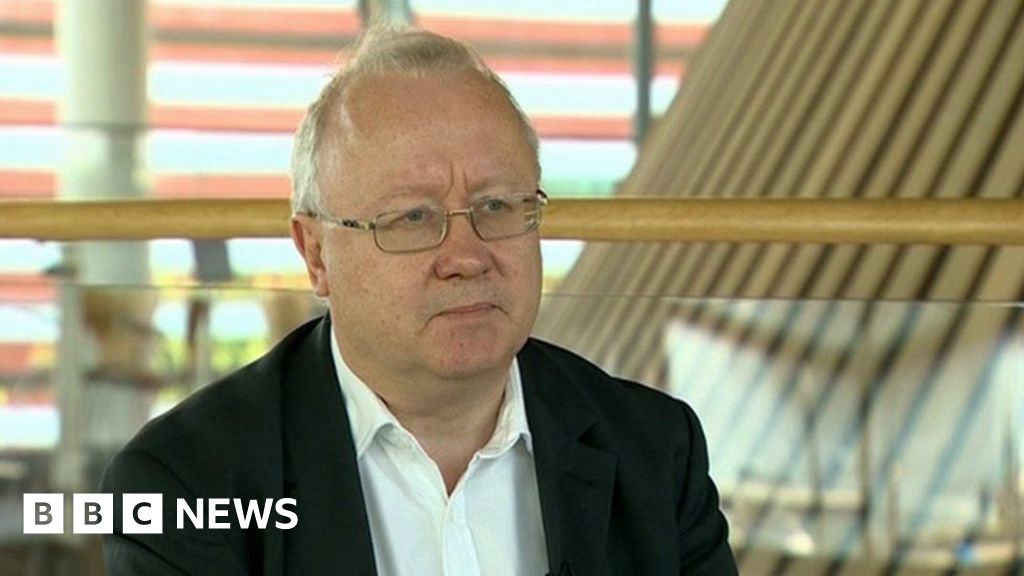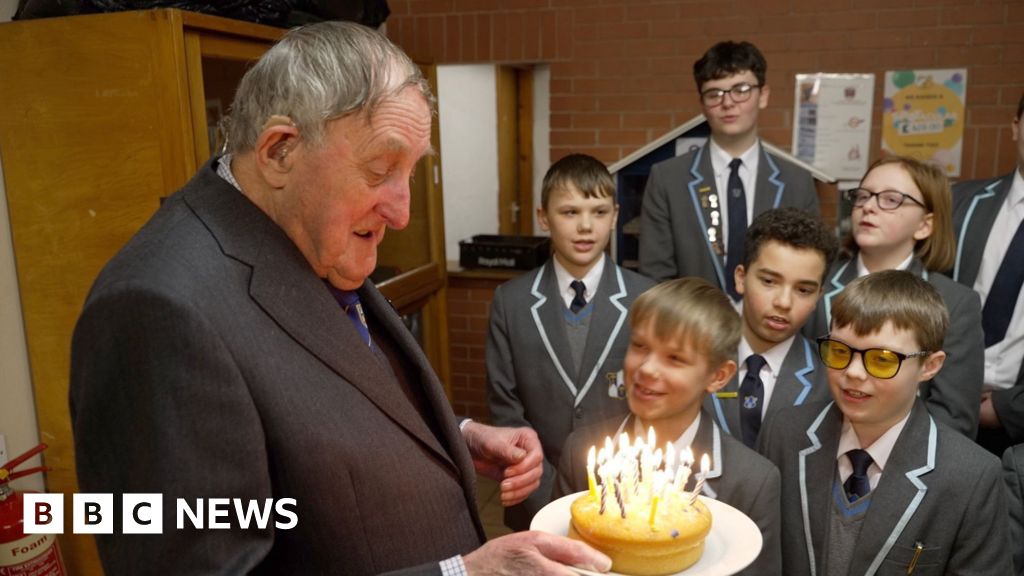 Image source, Getty Images
Image source, Getty Images
By Nathan Standley
BBC News
With exam season under way in schools and colleges, Year 11s might be thinking about what to do once GCSEs and BTecs are over.
One option for students in England is to study a T-level - the vocational equivalent to doing three A-levels.
But what are T-levels, and how do the grades compare?
What is a T-level?
T-levels, introduced in 2020, are vocational qualifications aimed at 16-to-19-year-olds, which focus more on practical subjects than academic ones.
Each course lasts two years and is roughly equivalent to three A-levels.
The qualification includes a mixture of both classroom learning and on-the-job experience, with a work placement of at least 315 hours - or about nine weeks - making up roughly 20% of the course.
T-levels are designed to cater for students who want an alternative to A-levels but do not wish to take an apprenticeship, which usually requires as much as 80% of a student's time to be spent with an employer.
Final grades are based on a combination of exams, coursework and completion of the industry placement.
But figures show that only two-thirds completed the course (5,210 students began a T-level three years ago).
The Department for Education (DfE) said it was "quite normal" for students to switch to different courses after enrolment, and it is working with providers to understand more about what can be done to improve retention.
What are T-level grades worth?
T-level qualifications are equivalent to three A-levels.
Students get one of four grades, ranging from a distinction* to a pass. Their certificate shows their overall grade and lists their experiences on the course.
A distinction* is worth 168 Ucas points - the same as three A*s at A-level - and a merit is equivalent to three Bs at A-level.
For those wanting to go on to higher education, the DfE says T-levels are accepted as an entry qualification by more than 150 UK universities and colleges.
What T-level courses are available?
The number of T-level courses has expanded each academic year since 2020, with a total of eight subjects sat by students in 2023.
T-levels in legal services, and agriculture, land management and production rolled out in September.
They will be followed in 2024 by animal care and management, as well as two delayed T-levels: craft and design, plus media, broadcast and production.
A third, in catering, has been delayed until "after 2024", and a marketing T-level is due to roll out in 2025.
A T-level in hairdressing, barbering and beauty therapy was due to begin in 2023, but was delayed before being scrapped.
Image source, Getty Images
Catherine Sezen, director of education policy at the Association of Colleges, said: "We have to question why it has taken so long to reach this decision."
Why were T-levels introduced?
In 2020 there were more than 12,000 vocational qualifications at all levels, offered by more than 150 awarding bodies, according to Ofqual, which oversees qualifications.
The DfE says T-levels were introduced to streamline post-16 education and make things less confusing for students and employers.
As T-levels continue to develop, funding will eventually be withdrawn for some other vocational qualifications.
There have been repeated calls for this process to be paused until T-levels are more fully embedded in the further education landscape.
When the recent delays were announced, Gillian Keegan said there would be "at least one year" between the introduction of a T-level and the removal of funding for similar qualifications. Under previous plans there would have been a two-year overlap.
Other vocational courses available in the UK include:
- BTecs (available across the UK)
- NVQs (available in England, Wales and Northern Ireland)
- Scottish Vocational Qualifications (SVQs).
Have you taken a T-level? Tell us about your experiences. Email haveyoursay@bbc.co.uk.
Please include a contact number if you are willing to speak to a BBC journalist. You can also get in touch in the following ways:
If you are reading this page and can't see the form you will need to visit the mobile version of the BBC website to submit your question or comment or you can email us at HaveYourSay@bbc.co.uk. Please include your name, age and location with any submission.

 8 months ago
51
8 months ago
51










